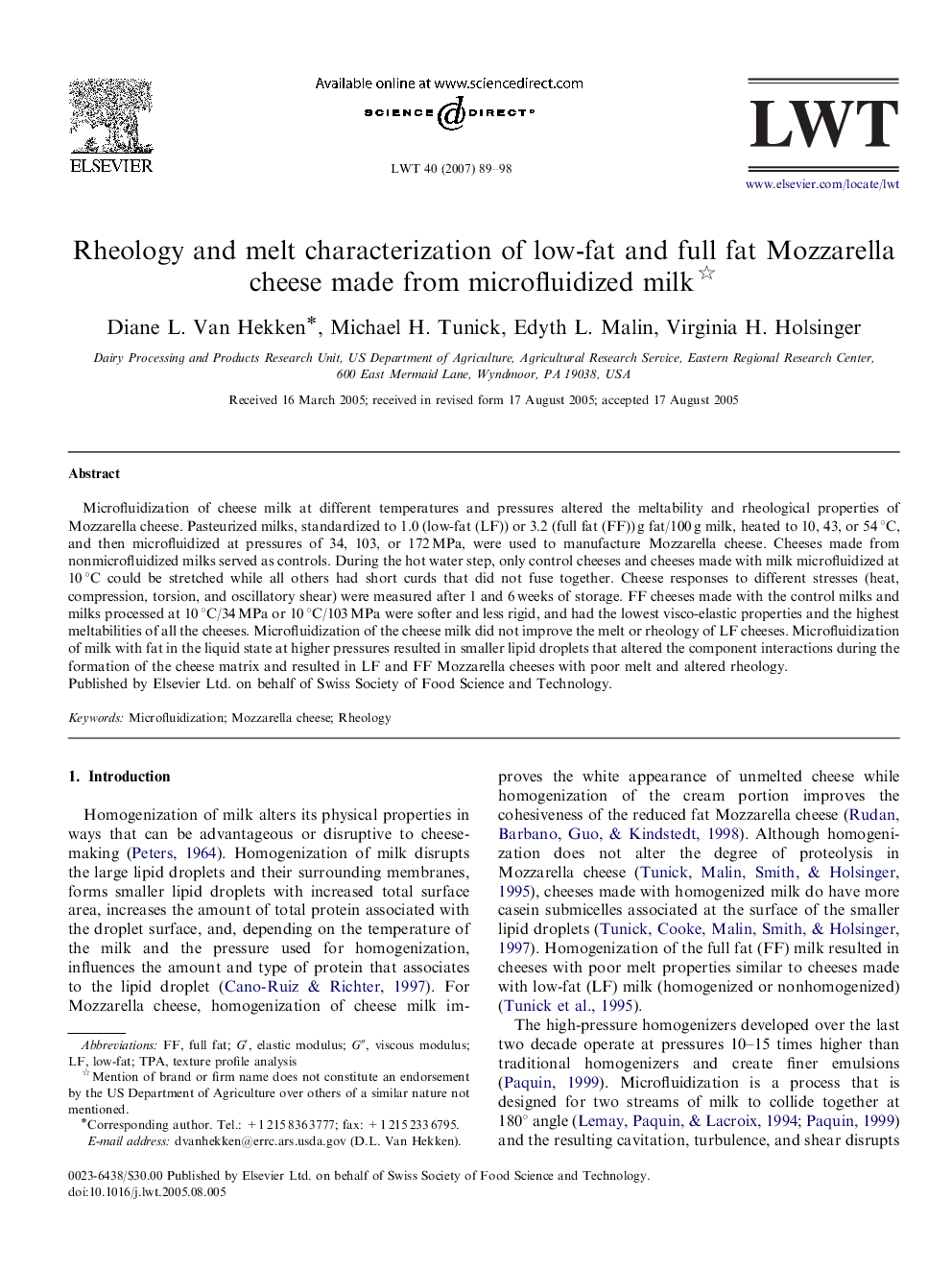| Article ID | Journal | Published Year | Pages | File Type |
|---|---|---|---|---|
| 4565297 | LWT - Food Science and Technology | 2007 | 10 Pages |
Microfluidization of cheese milk at different temperatures and pressures altered the meltability and rheological properties of Mozzarella cheese. Pasteurized milks, standardized to 1.0 (low-fat (LF)) or 3.2 (full fat (FF)) g fat/100 g milk, heated to 10, 43, or 54 °C, and then microfluidized at pressures of 34, 103, or 172 MPa, were used to manufacture Mozzarella cheese. Cheeses made from nonmicrofluidized milks served as controls. During the hot water step, only control cheeses and cheeses made with milk microfluidized at 10 °C could be stretched while all others had short curds that did not fuse together. Cheese responses to different stresses (heat, compression, torsion, and oscillatory shear) were measured after 1 and 6 weeks of storage. FF cheeses made with the control milks and milks processed at 10 °C/34 MPa or 10 °C/103 MPa were softer and less rigid, and had the lowest visco-elastic properties and the highest meltabilities of all the cheeses. Microfluidization of the cheese milk did not improve the melt or rheology of LF cheeses. Microfluidization of milk with fat in the liquid state at higher pressures resulted in smaller lipid droplets that altered the component interactions during the formation of the cheese matrix and resulted in LF and FF Mozzarella cheeses with poor melt and altered rheology.
